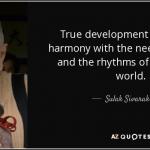Today I have some early thoughts on a topic that I hope I will return to, perhaps again and again, over the months and years to come. I live and work currently in Hong Kong, which some might mistakenly say is “part of China” or might also mistakenly say is “not part of China.”
The confusing middle ground is best exemplified by the phrase, “one country, two systems.” But that just scratches the surface. The first system is, of course, Chinese rule, but the second system at work here is, as far as I can tell, the British-colonial-business system. Just how and where exactly the two systems meet and clash is still well beyond my view. There are simple things, like needing a different visa to live here than the one I have for visits to China (a visa issued by Hong Kong, not by Beijing/China), and facebook works here (no “great firewall of China” in HK).
I grew up on a dirt road in rural, rural Montana. China was only ever some abstract “other” – the bad guys in some films, the funny sidekick perhaps, the place where all our stuff was made. I worked for a couple years at our towns best Chinese food restaurant (I’m happy to say that Yat Son’s is still there, now in East Helena), though that was much more an experience in hard work and kitchen comradery than anything else.
During my graduate school days in Bristol, England I lived with a number of fellow ‘international postgraduates’, and many were working on issues of international relations and politics. One woman I remember was doing her degree on international maritime law, specifically defending Vietnam’s claim to the Spratly Islands. More recently, another friend was working on Kenya’s response to massive Chinese influence in its commercial and shipping industries.
These and other experiences, along with 4 summer-trips to mainland China in the last 10 years, one trip to Taiwan, and life now in HK have strongly piqued my interest in both the extraordinarily dynamic political world of China and the perhaps more hidden but nonetheless important world of Buddhism here.
And, try as one might, you cannot really look deeply into politics in Asia without seeing Buddhism or vice-versa (a bit like Huayen’s “Indra’s Net”).
The first external resource I want to add here is a book review done by my BuddhistDoor Global colleague Raymond Lam. It covers The Souls of China: The Return of Religion After Mao, by Ian Johnson. As Lam writes there:
Few human endeavors are as deep and primordial as religion and few countries are as vast and multifaceted as China. Religion in China is, not surprisingly, a tricky beast to have even a basic understanding of without resorting to Western categories or long-established tropes.
He rightly emphasizes that loaded Western vocabulary (including the very word “religion”) is not helpful for surveying the explosion of faith in China due to complex historical and present-day factors. “Instead, it is much more useful to ask people how they act, or whether they believe in specific ideas.” For example, Johnson notes that people respond much more positively when one speaks of xinyang (信仰)—faith, than zongjiao (宗教)—religion.
As I’ve written about here and there over the years, we see that looking for “religion” can steer us off course when trying to understand Buddhism, even as it is lived and practiced in contemporary lives. Lam points us to some helpful numbers:
We know from the 2007 China Spiritual Life Study by Perdue University that 185 million people (roughly 13 per cent of the population) consider themselves Buddhists, with 17.3 million having formal ties to a temple as lay Buddhists (ju shi). A government survey in 2014 noted that there were 33,000 Buddhist temples in China and 500,000 monks and nuns residing in them.
It’s not my area of expertise, but I seem to recall some discussions over the years about how difficult it is to trust even these numbers: China being so large, with so much flux, and with religion (or whatever we want to call it) being such a touchy subject there. In any case, this book surely just scratches the surface of what to me is an increasingly fascinating and bewildering topic: Buddhism in China.
Luckily, Buddhistdoor has an entire section dedicated to ongoing discussions of Buddhism in the People’s Republic…
Second, an analysis of Chinese political “soft power” in Africa.
It makes China look like the new (or emerging) colonial power of the world. On the political and economic fronts, so much can happen. They could solidify a global footprint that ensures steady growth for decades to come. They could over-stretch themselves and/or wear out their welcome in many of these countries and need to retreat. They could, in perhaps 20, 30, or 50 years, establish themselves as the new global superpower, at least in terms of sheer economic reach.
However, of interest along the way will be Buddhism. Will Buddhist teachers follow the merchants and trade routes of the new Belt and Road Initiative and beyond? Could the expansion of China we are seeing now in fact be the groundwork for the greatest expansion of Buddhism that any of us have seen in our lifetimes?
I’ll end with one of the concluding remarks I gave in my HKU graduate course on Buddhism and Contemporary Society this week. I am coming here with a background steeped in Western and particularly N. American Buddhism. And, as America is a major ‘exporter of culture’, influencing trends around the world, it makes sense for us, even in Hong Kong, to spend a little time focusing directly on Buddhism in America. I pointed to Diana Eck’s excellent book on A New Religious America, which I wrote about a couple years ago here. In that book she notes, “We are astonished to learn that Los Angeles is the most complex Buddhist city in the world…”
However, looking out into my classroom of 70 or so students I saw two E. Asian nuns on one side, two or three Theravadin monks on another, not far from two Tibetan monks, and (quite likely at least) lay practitioners spanning the adult age range and likely numerous traditions and approaches. So in that moment I said, “who knows, perhaps Hong Kong is every bit as complex a Buddhist city as Los Angeles.”
Perhaps HK, especially with the Buddhist vitality of China and South and S.E. Asia nearby, is the place to look for the future of Buddhism in the world, much more so than in N. America or Europe.













